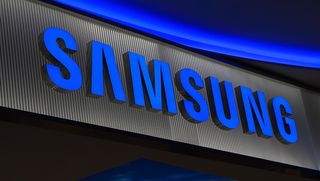Samsung profits hit by falling smartphone sales
Vendor blames 40 per cent drop on "slowing IT demand" and poor mobile sales

Samsung has revealed a 40 per cent year-on-year drop in its Q4 profits, and warned of challenges in the coming year.
The company noted that "global economic headwinds, including a sharp fall in oil prices ... [and] the strength of the Korean Won" had all contributed contributed to the issue, a slowdown in mobile shipments and PC sales were also significant factors.
"A slight QoQ [quarter-on-quarter] decrease in smartphone shipments due to a year-end inventory adjustment and an increased portion of the mid-to-low end products led to the decline in sales, while a seasonal increase in marketing expenses slightly impacted profit," said the company in a statement.
In plain English, this means the company did not sell as many smartphones as it had hoped, despite doing more marketing than usual.
Samsung only predicted single-digit growth in its smartphone and tablet categories for the year ahead amid softening demand and intensifying competition.
"Despite this challenging environment, the company will focus on increasing smartphone shipments ... specifically, in the premium segment Samsung aims to reinforce its market leadership and drive growth with differentiated and innovative products," the company added.
Last year's flagship phones, the Galaxy S6 and S6 edge, failed to perform as well as hoped, while Chinese manufacturers present a specific challenge for Samsung's mass-market devices.
Get the ITPro. daily newsletter
Receive our latest news, industry updates, featured resources and more. Sign up today to receive our FREE report on AI cyber crime & security - newly updated for 2024.
The company will no doubt hope that this year's Galaxy S7, S7 edge and S7 edge+,which are expected to launch in early March, will perform better.
Jake Saunders, Asia-Pacific director at analyst house ABI Research,toldBBC News: "It's showing that they are under pressure - about half of their revenue comes from mobile devices. Xiaomi is getting traction in markets like India and Indonesia, which are very large markets for smartphone devices and it's also where we see strong growth."
However, Saunders also pointed out an overall slowdown in global demand during 2015, with the market growing only two per cent over the course of the year.
This same drop in global demand for smartphones also hit Apple, which reported its Q1 2016 figures (which actually covers the final calendar quarter of 2015) on Tuesday.
Much like Samsung, the company is heavily reliant on smartphone sales, which generated 68 per cent of the company's revenue over the quarter. While iPhone sales did rise during the period, it was the slowest growth in the eight years since the device was first launched.
Perhaps more concerningly for investors, the organisation warned that revenue generated by iPhones during the current quarter could fall for the first time ever.
It was not all bad news for Samsung, however, which reported that, unlike rival Apple, sales of its tablets were up over the same period, with tablets and wearables "expected to expand their contributions to overall business performance", with big things expected from its IoT business.

Jane McCallion is ITPro's deputy editor, specializing in cloud computing, cyber security, data centers and enterprise IT infrastructure. Before becoming Deputy Editor, she held the role of Features Editor, managing a pool of freelance and internal writers, while continuing to specialise in enterprise IT infrastructure, and business strategy.
Prior to joining ITPro, Jane was a freelance business journalist writing as both Jane McCallion and Jane Bordenave for titles such as European CEO, World Finance, and Business Excellence Magazine.




